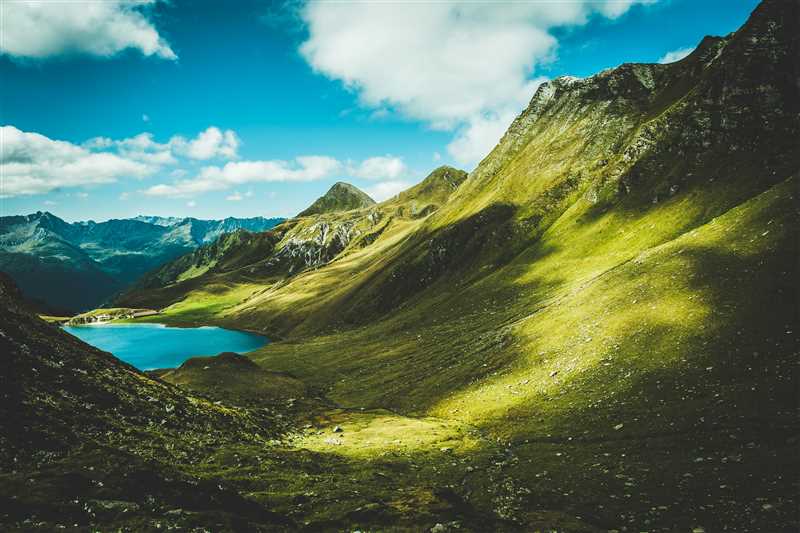First Impressions: Clean, Calm, and Captivating
From the moment you arrive in Switzerland, one thing becomes clear: everything runs like clockwork. Trains are on time, cities are spotless, and the air feels fresher than anywhere else. But it’s not just about efficiency—Switzerland feels like a land of harmony. The people are polite, the landscapes are perfectly preserved, and there's a calming quietness even in the busiest cities.
The Mountains: Swiss Alps at Their Finest
Switzerland is synonymous with the Alps, and rightly so. These majestic mountains form the heart of the country and offer some of the most breathtaking views in Europe.
If you’re visiting in winter, head to famous ski resorts like Zermatt, St. Moritz, or Verbier. These aren’t just world-class skiing destinations—they’re also home to luxurious chalets, gourmet dining, and a cozy après-ski culture.
During the summer, the Alps transform into a paradise for hikers and bikers. One of the most famous trails is the Five Lakes Walk near Zermatt, where you’ll encounter alpine lakes reflecting the Matterhorn like a mirror.
For the ultimate panoramic view, take a ride on the Jungfraujoch Railway—Europe’s highest train station. The journey to the “Top of Europe” is an unforgettable experience, with tunnels cut through glaciers and views that stretch across the continent.
Swiss Cities: Where Modern Meets Medieval
Though small in size, Swiss cities pack a punch when it comes to culture, charm, and quality of life.
-
Zurich, the financial capital, is sleek, stylish, and set beside a pristine lake. Its Old Town (Altstadt) offers cobbled streets, boutique shops, and centuries-old churches, while the modern part boasts art galleries, nightlife, and gourmet dining.
-
Lucerne is often considered Switzerland’s prettiest city. With its wooden Chapel Bridge, medieval architecture, and the backdrop of Mount Pilatus, it feels like something out of a fairy tale.
-
Geneva is international and cosmopolitan, home to the UN and Red Cross. Its lake, Jet d’Eau fountain, and luxury boutiques give it a distinct global flavor.
-
Bern, the capital, has a relaxed vibe with its UNESCO-listed old town, clock towers, and arcaded streets. It’s a city that invites you to slow down and soak in the history.
-
Lausanne and Montreux, both on the shores of Lake Geneva, are cultural hubs with beautiful lakeside promenades and music festivals, including the world-famous Montreux Jazz Festival.
Lakes and Landscapes: Nature in Every Direction
Switzerland is dotted with stunning lakes that look like paintings. Lake Geneva, Lake Lucerne, Lake Zurich, and Lake Thun are among the most famous, offering opportunities for boat rides, paddleboarding, or simply relaxing by the water with a view of the Alps.
Take a scenic ride on the Glacier Express, often called the slowest express train in the world. It connects Zermatt and St. Moritz, winding through deep valleys, across ancient bridges, and past glaciers—every turn offering postcard-perfect views.
Another must-visit is Interlaken, sandwiched between Lake Thun and Lake Brienz, and a gateway to the Bernese Oberland region. From here, you can paraglide, hike, take scenic cable car rides, or visit nearby alpine villages like Lauterbrunnen and Grindelwald.
Swiss Food: Comforting and Delicious
Switzerland’s cuisine is hearty, comforting, and deeply regional. It draws influences from German, French, and Italian traditions—depending on which part of the country you're in.
-
Try fondue or raclette for the ultimate cheesy experience, especially in a mountain chalet during winter.
-
Rösti, a crispy potato dish, is a beloved staple across the country.
-
For sweet lovers, Swiss chocolate is world-famous for a reason. Visit chocolate factories like Maison Cailler or Lindt Home of Chocolate to see (and taste) the magic.
Swiss wines are lesser-known internationally but are excellent—especially the crisp whites from the Lavaux vineyards, a UNESCO site overlooking Lake Geneva.
A Country of Languages and Harmony
One of the most unique things about Switzerland is its multilingual culture. There are four national languages—German, French, Italian, and Romansh—and each region feels like its own mini-country. Yet, despite the differences, the Swiss model of governance, neutrality, and respect creates a deep sense of unity and peace.
You can go from sipping espresso in an Italian-speaking village in Ticino, to enjoying croissants in the French-speaking streets of Lausanne, to hearing Swiss-German in the markets of Zurich—all within a few hours.
Practical Tips
-
Currency: Swiss Franc (CHF), though euros are sometimes accepted in tourist areas.
-
Transport: Switzerland’s train system is one of the best in the world. Get a Swiss Travel Pass for unlimited travel on trains, boats, and buses.
-
Weather: Summers (June–August) are warm and great for hiking. Winters (December–March) are ideal for skiing and snow sports.
-
Costs: Switzerland is expensive—budget accordingly. Supermarkets like Coop and Migros offer affordable meals.
Final Thoughts
Switzerland isn’t just a destination—it’s a feeling. It’s the awe of standing beneath towering peaks, the comfort of a warm meal in a wooden chalet, the thrill of zooming down snowy slopes, and the peace of watching the sun set over a quiet lake.
It’s one of those rare places where every photo you take looks like a postcard—and yet nothing beats seeing it with your own eyes. Whether you're visiting for a week or a month, Switzerland has a way of staying with you long after you've left.





